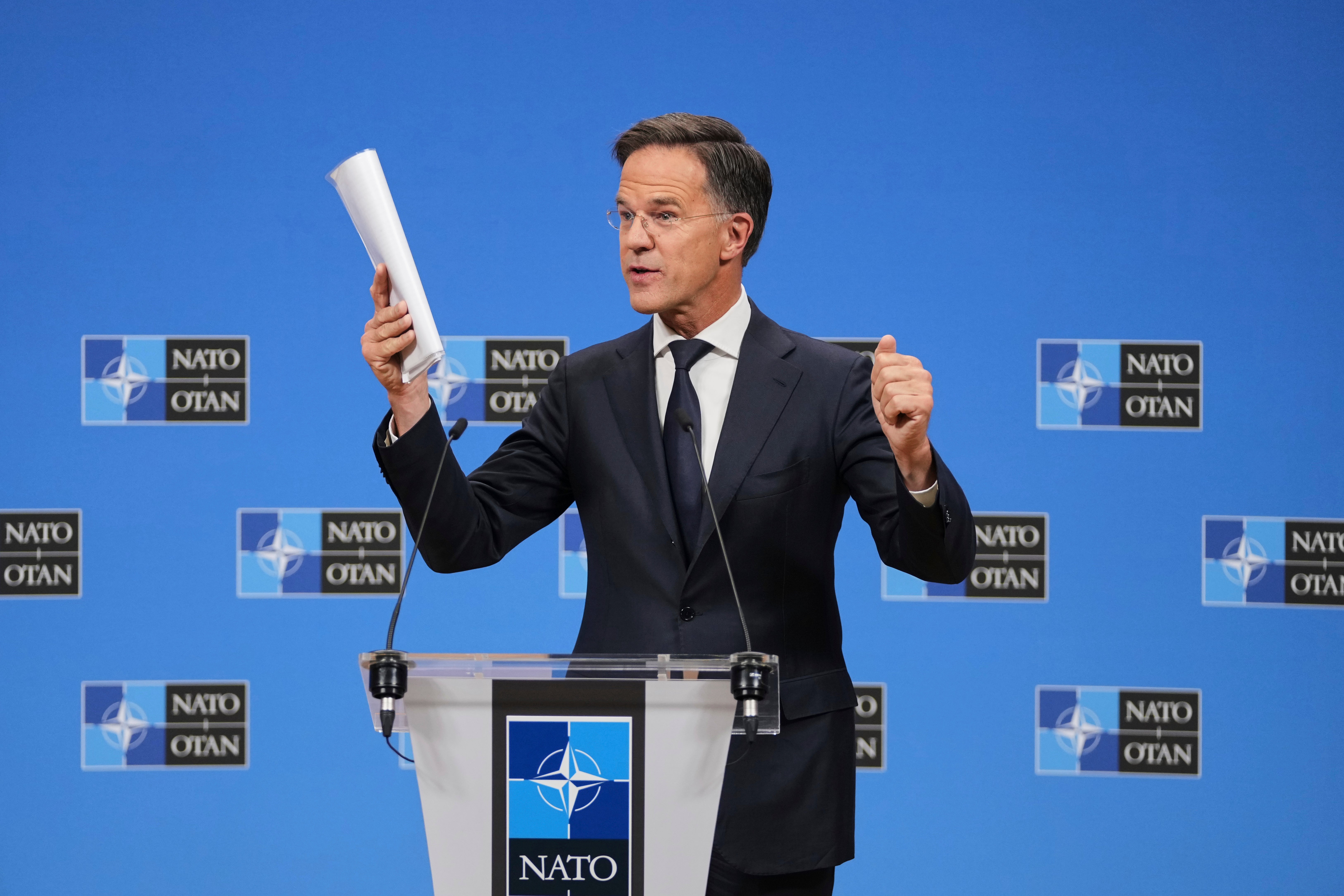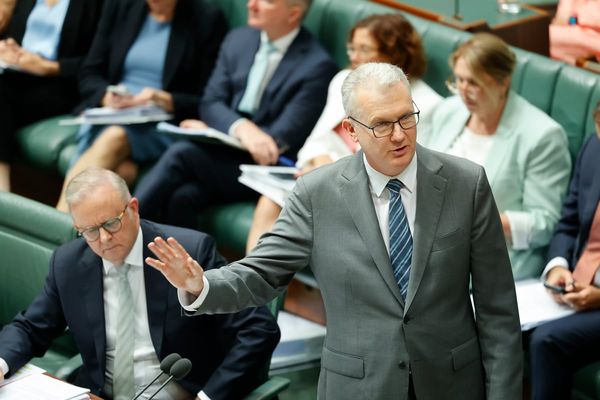
NATO is set to conduct its major annual nuclear exercise next week, with a primary focus on protecting its weapons before deployment, the alliance’s chief announced on Friday.
The long-planned "Steadfast Noon" drill, beginning Monday, occurs amidst heightened security at European military facilities, following mysterious drone incidents, some blamed on Russia.
Running for around two weeks, the exercise will be led by the Netherlands and involve 71 aircraft from 14 NATO nations. It has been held annually for over a decade.
“We need to do this because it helps us to make sure that our nuclear deterrent remains as credible, and as safe, and as secure, and as effective as possible," NATO Secretary-General Mark Rutte said in a video statement.
"It also sends a clear signal to any potential adversary that we will and can protect and defend all allies against all threats,” he said.
Bomber aircraft and fighter jets that can carry nuclear warheads are taking part, but no nuclear weapons or live munitions will be used. The bulk of the exercise is being held in the North Sea, far from Russia and Ukraine.

It will involve military bases in Belgium, Britain, Denmark, the Netherlands.
The United States and Britain, with their nuclear forces, are key to NATO’s strategic deterrence. France also has nuclear weapons but is not a part of the organization’s nuclear planning group.
NATO officials would not say what kind of scenarios will be used to test the 32-nation alliance's nuclear readiness, but they insisted that it is not directed toward any particular country, nor does it relate to current international events.
The United States is providing F-35 jets capable of carrying conventional or nuclear weapons, refueling planes and other support aircraft. Finland and Poland are sending fighter jets. Electronic warfare equipment and reconnaissance and intelligence systems will also be used.
A big part of the exercise will focus on protecting nuclear weapons on the ground, said Col. Daniel Bunch, Chief of NATO Nuclear Operations at the alliance’s military headquarters in Mons, Belgium.
Bunch said there are “a variety of different threats that we assess and that we must defend against because these are highly protected assets that require the utmost security and safety.”
Asked whether drones are a particular concern given the recent incidents, notably near military facilities in Belgium and Denmark, he said: “Drones are not a new threat to us. Drones are something we understand.”
“The more frequent incursions are something we’re obviously keeping an eye on,” Bunch acknowledged, but he added: “Ultimately, we’re going to stay one step ahead of the adversary.”
The Washington Summit declaration agreed by the alliance’s leaders last year states that “the fundamental purpose of NATO’s nuclear capability is to preserve peace, prevent coercion and deter aggression.”
“As long as nuclear weapons exist, NATO will remain a nuclear alliance,” it said.
James Stokes, the head of NATO’s Nuclear Policy Directorate told reporters that despite the Kremlin’s continued and heated rhetoric the allies “haven’t seen any change in Russia’s nuclear posture” recently.
He underlined that Russia is not a focus of the exercise, but said that NATO continues to monitor Russian military activities, including its use of dual-capable missiles in Ukraine, which could be fitted to carry nuclear warheads.
26 migrants sent to France while nearly 10,000 have arrived since deal
Ukraine war live: Russian fighter jet crashes before drone attack on Kyiv
A list of this year's Nobel Prize winners so far
New large coral reef containing ancient life discovered
Trump says Chinese airlines could be forced to take longer routes avoiding Russia
ICC judges decline to release former Philippine President Rodrigo Duterte, citing flight risk







